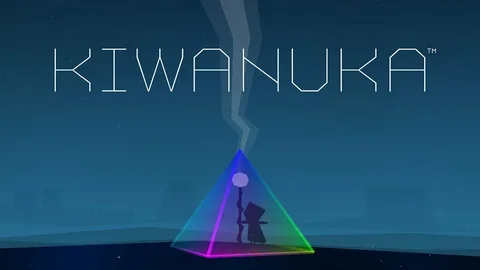Playing video games can help people better cope with mental health issues such as anxiety, depression, attention deficit hyperactivity disorder (ADHD), and post-traumatic stress disorder (PTSD).
What are the pros and cons of video games?
Video games can be used to help improve test scores, teach life and job skills, improve brain function, and encourage physical exercise. Because video game addiction can negatively impact social and physical health, parents should be aware of the symptoms.
Do video games improve mental skills?
THE BENEFITS OF PLAYING VIDEOGAMES
- They speed up response times. …
- They encourage teamwork. …
- They stimulate creativity, focus and visual memory. …
- They improve strategy and leadership. …
- They teach languages. …
- Critical thinking.
Do video games affect mental health?
Gaming Causes Poor Emotional Regulation
One of the biggest negative effects of video games can lead you to struggle with regulating your emotions properly. Studies show that people diagnosed with Internet gaming disorder are more likely to be aggressive, depressed, and anxious.
Which video games improve IQ?
15 Video Games That Make You Smarter
- Lumosity.
- Eidetic.
- ReliefLink.
- Brain Fitness Pro.
- CogniFit Brain Fitness.
- Brain it On!
- Chain Reaction.
- 2048.
Do video games help with ADHD?
Researchers interpreted the findings to suggest that video game playing can “compound kids’ existing attention problems.” But the study results don’t offer supporting evidence that the games cause or worsen the attention problems — they just suggest that kids who play the most have more severe ADHD symptoms.
Does gaming calm you down?
Video games are engaging and enjoyable, which reduces stress. Gaming results in dopamine secretion, which makes you feel good. Video games present a challenge and reward you for overcoming it, which leads to feelings of competence. Gaming can create a flow state, which is similar to meditation.
Is video gaming good or bad?
It’s true that some studies have shown certain video games can improve hand–eye coordination, problem-solving skills, and the mind’s ability to process information. But too much video game playing may cause problems. It’s hard to get enough active play and exercise if you’re always inside playing video games.
Are video games good for your brain?
A study of nearly 2,000 children found that those who reported playing video games for three hours per day or more performed better on cognitive skills tests involving impulse control and working memory compared to children who had never played video games.
Can video games have a positive effect?
Gaming is really a workout for your mind disguised as fun. Studies have shown that playing video games regularly may increase gray matter in the brain and boost brain connectivity. (Gray matter is associated with muscle control, memories, perception, and spatial navigation.)
How gaming is good for you – 4 Mental Benefits
The most notable positive effects of gaming include:
Increased hand-to-eye coordination. Greater multi-tasking ability. Faster and more accurate decision-making. Enhanced prosocial behaviors.
Do video games help more than therapy?
These games help foster feelings of social connectedness, a sense of achievement, and emotional regulation skills, among other benefits. However, playing video games for mental health benefits should not be considered a replacement for traditional therapy, experts say.
Чем полезны игры: 4 преимущества для ума
Do video games help with PTSD?
Clients with PTSD and depressive disorders have shown to benefit extensively from the use of video games (Holmes et al. 2010). Holmes et al. (2010) noted video games help to reduce the symptoms of PTSD and depression (Russoniello et al.
Do video games help you get smarter?
Do video games help you get smarter?
Most off-the-shelf video games do little to improve cognitive abilities. But certain well-designed ones can enhance proficiency at skills such as “task switching,” also known as multitasking.
Why are video games fun?
Why are video games fun? Video games are fun because they transport us to new realities and satisfy our needs for achievement and recognition. Video games also keep us interested with puzzles and mini-games, and engaged due to their attention to detail.
Do video games drain your mental energy?
Mental or physical exhaustion
If you’re affected by gaming fatigue or burnout, you will most likely experience symptoms of exhaustion which include feeling tired, lethargic, irritable, and emotionally drained. You may also experience physical ailments such as headache or feeling physically weak.
Can video games be used for therapy?
Video games can be a useful tool for therapists.
Video games can help make talking to a therapist easier and build rapport in the beginning stages of treatment. Video games can be used to teach valuable skills. Video games can help group members bond with one another over shared interests.
Do video games help with stress?
Most video games are fun and engaging. Gaming produces a release of dopamine (the happy hormone) which will make you feel good and help you cope with the stresses of everyday life.
Do brain games increase IQ?
Unfortunately, there was no evidence to support that claim. Other studies showed that people who do a mere hour of brain training have a slight and temporary bump in their IQ by five points, but only if they believe the training will have an effect on their cognition.
Do video games help with social skills?
Online video games can allow players to talk to others and make friends at their current ability level even when they are not emotionally or physically able to leave their homes. This can help build the skills and confidence necessary to try it in-person.
Do games affect IQ?
Video games increase intelligence
The results showed that those children who spent an above-average amount of time playing video games increased their intelligence by approximately 2.5 IQ points more than the average.
Do video games make you happier?
Or high stress to lower stress. In fact, research has found video games to be a particularly efficient vehicle for mood management. This is because good games (well-designed games) engage players in a way that meets basic psychological needs as humans.
Do video games release dopamine?
The reward center in the brain releases dopamine in response to a pleasurable experience or hyperarousal. If a person experiences hyperarousal while playing video games, the brain associates the activity with dopamine. The person develops a strong drive to seek out that same pleasure again and again.
Do video games help with anxiety?
Many find that video games help with anxiety by providing a different focus for thoughts thanks to a need for total concentration on a game. Video games distract from daily troubles by providing an engaging escape. Escape is a big part of the allure of gaming. Video games often relieve stress and anxiety.
Do video games help with depression?
Top Benefits Of Playing Video Games
The researchers discovered that by playing with purpose, you can not only overcome depression but also boost your self-confidence and develop skills that will help you in real life.




